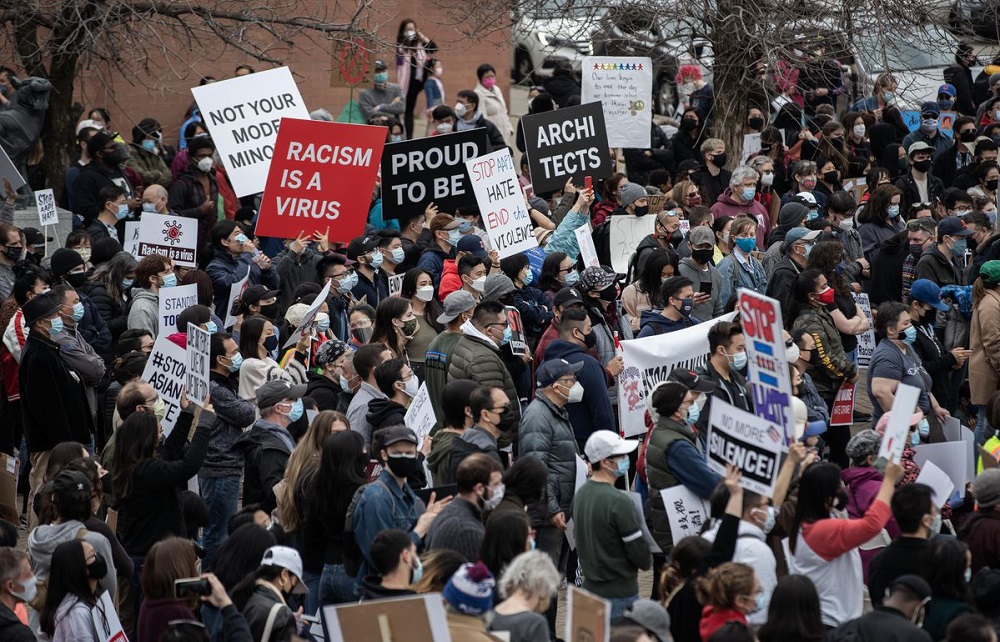The United States makes a big fuss about “human rights.” What’s wrong with that? Isn’t that standing up for the dignity and quality of life for people around the world? The doctrine of American exceptionalism frames the United States as a benevolent, righteous and spotless power that acts as a force for good in espousing its ideology to other nations. This is of course how Washington has always framed its foreign policy. It has continually depicted global affairs as a binary battle between good and evil, using the rhetoric of “human rights” to condemn other countries.
However, this is all a bit misleading. What America says and what America does, are in fact not the same thing. Throughout its history, the U.S. has not so much been an advocate of human rights, as it has utilized them as a geopolitical and ideological weapon against countries it dislikes, often selectively and dishonestly. In doing so, the actions of America have served to the detriment of the human rights of millions of people, both on its own territory and abroad as a consequence of its highly militarist activities and reckless behavior in certain regions. Once we look at the evidence, it’s not possible to truly call America a “champion” of humanity.
In 1939, one of the most famous early writers on international relations, proclaimed the “father of realism,” E.H. Carr, published “The Twenty Years’ Crisis” critiquing what he described as “liberal utopianism” in foreign policy. He argued that international relations should be understood as a materialist science based on the premise of “interests” as opposed to a value sentiment. “Politics came before principles” and in turn great powers such as the British Empire used the rhetoric of “free trade” and “open seas” to uphold their own specific interests, and these were the fundamentals of how the international system worked.
Not surprisingly, what we might describe as the “human rights regime” is partially accounted for like this. While human rights have obviously evolved as abstract norms and ideas based on historical progress, of which nations around the world agreed to share, nonetheless, in practice this rhetoric is more used as a staple of geopolitics, especially by America. The United States does not see “human rights” as a moralistic end in and of itself so much as it uses it as a tool to discredit, smear and justify aggressive policies toward countries it dislikes. In the post-Cold War era, human rights have essentially become a propaganda tool used to win consent for military interventions with America selectively ignoring human rights crises in countries in which it has no geopolitical interest. Moral sentiment legitimates aggression.

As a result, this zealous rhetoric selectively espoused by America and its media proxies glosses over the country’s own failures. America is not a champion of human rights. Its geopolitically motivated invasions and regime changes in the Middle East – in Iraq, Libya and Syria to name a few – have killed millions of people and destroyed millions more lives. Right now, a humanitarian crisis is underway in Yemen, as the U.S.-backed conflict has seen people brought to the brink of starvation. Crippling American sanctions have brought about food insecurity in places such as Venezuela, while at home, the system has created vast inequality whereby the interests of corporations and the mega rich are placed above those of ordinary people.
For example, over 500,000 people in the U.S. have lost their lives due to COVID-19 — more than anywhere else in the world — simply because the country was unwilling to pursue longer lockdowns. Chronic gun violence continues to kill thousands of people annually at the behest of supporting the big arms lobby. Meanwhile, the indigenous Native American population has suffered from a genocide which has vastly depleted their numbers and left them with social difficulties as American expansionists seized their land and built their country on top of it, often using the slave labor of African Americans who still face social inequality, unemployment and injustice to this day.
In this case, how is America qualified to preach on human rights? It is a means to an end, a tool, a useful propaganda apparatus for discrediting and demonizing countries that stand in its way of global dominance, all while failing to meet even the most basic obligations at home.
Ultimately, the system of human rights matters deeply, and is something that all countries must adhere to. However, we must also be honest about the geopolitical motives for which it is used, which is more vested in opportunity than principle.
Tom Fowdy is a British political and international relations analyst and a graduate of Durham and Oxford universities. He writes on topics pertaining to China, the DPRK, Britain and the U.S.
-china.org.cn























प्रतिक्रिया